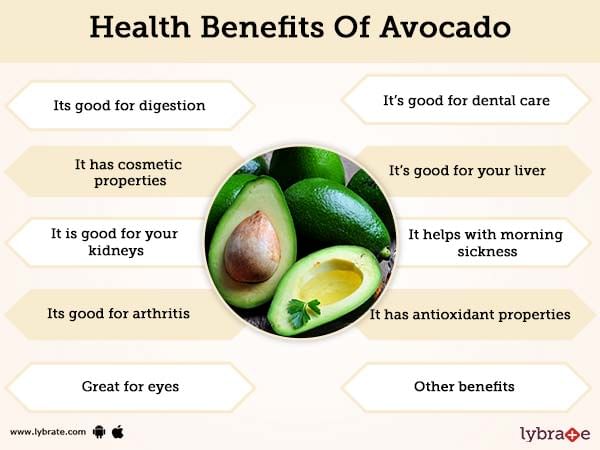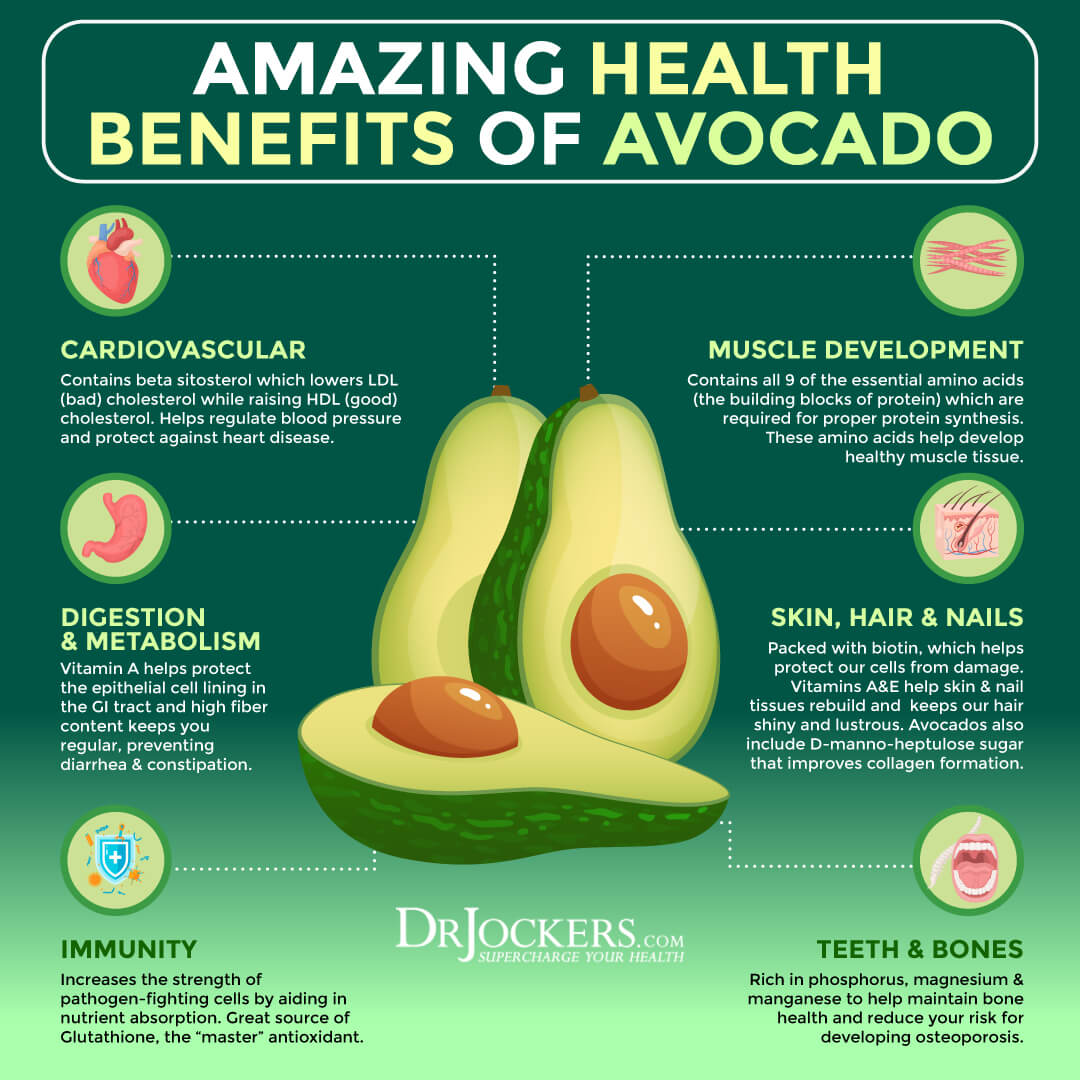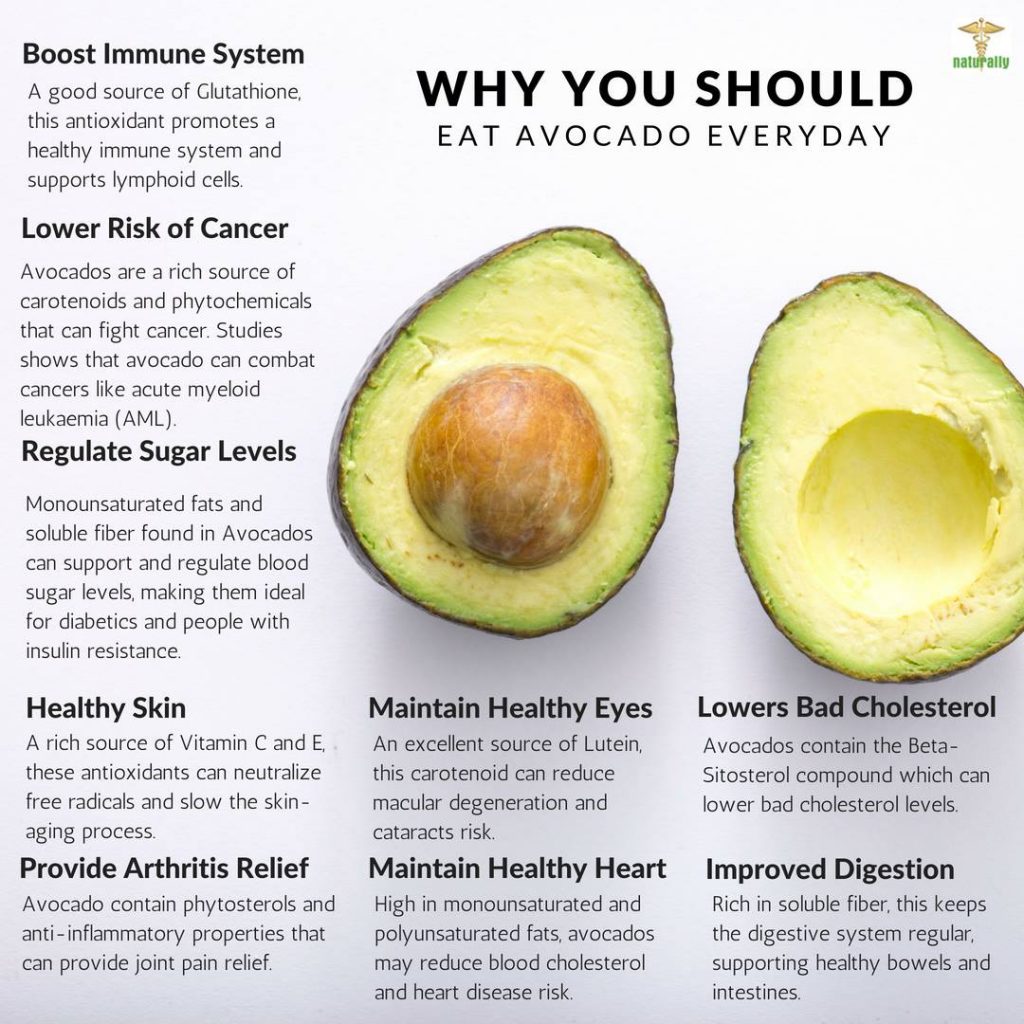Demystifying the Superfood: What Makes Avocado a Nutritional Powerhouse?
Avocados have gained a reputation as a superfood, and for good reason. These nutrient-dense fruits offer a wide array of essential vitamins, minerals, and beneficial plant compounds. The advantages of eating avocado are numerous, contributing to overall health and well-being. A single serving of avocado (approximately 3.5 ounces or 100 grams) provides an impressive 160 calories, 2 grams of protein, 15 grams of healthy fats, and 9 grams of dietary fiber. Additionally, avocados contain high levels of vitamins A, C, E, K, B-6, and folate, as well as minerals such as potassium, magnesium, and manganese.
The Versatile Fruit: Avocado in Different Cuisines and Meals
One of the primary advantages of eating avocado is its versatility in various cuisines and meals. Avocado’s mild flavor and creamy texture make it an excellent addition to numerous dishes, allowing for easy integration into one’s daily diet. Incorporating avocado into meals can be as simple as adding slices to a sandwich or salad, or as creative as using it as a base for dips and spreads. Avocado’s adaptability extends to cuisines from around the world. For example, it is a staple ingredient in Mexican dishes such as guacamole and tacos, while also featuring prominently in Asian-inspired salads and bowls. Its mild flavor allows it to complement a wide range of flavors and ingredients, making it an ideal addition to any meal.
Moreover, avocado’s accessibility and year-round availability make it a convenient choice for those looking to enhance their nutritional intake. With its numerous health benefits and culinary applications, incorporating avocado into one’s diet can be both enjoyable and rewarding.
Heart Health and Avocado: A Match Made in Heaven
Avocado’s healthy fats, particularly monounsaturated fats, play a significant role in supporting heart health. According to the American Heart Association, monounsaturated fats can help reduce levels of low-density lipoprotein (LDL), or “bad” cholesterol, and increase high-density lipoprotein (HDL), or “good” cholesterol. A study published in the Journal of the American Heart Association found that individuals who consumed one avocado per day as part of a heart-healthy, cholesterol-lowering diet experienced significant reductions in LDL cholesterol levels compared to those following a similar diet without avocado. Additionally, avocado is a rich source of potassium, a mineral that helps regulate blood pressure and reduce the risk of stroke. The high fiber content of avocado also aids in heart health by promoting healthy digestion and reducing the risk of heart disease.
Incorporating avocado into a heart-healthy diet can be both delicious and beneficial. Consider adding avocado to salads, sandwiches, or as a replacement for less healthy fats in cooking and baking. By taking advantage of the advantages of eating avocado, individuals can support their heart health and overall well-being.
How to: Incorporating Avocado for a Healthier Gut
Avocado’s fiber content can significantly benefit gut health, promoting optimal digestive function and supporting overall well-being. A single serving of avocado provides approximately 10 grams of dietary fiber, which is essential for maintaining a healthy gut microbiome. To incorporate avocado into your daily diet for a healthier gut, consider the following tips and meal ideas:
- Add avocado slices to salads, sandwiches, or tacos for an extra fiber boost.
- Create a fiber-rich smoothie by blending avocado with fruits, vegetables, and a source of plant-based protein, such as chia seeds or hemp hearts.
- Use avocado as a substitute for less healthy fats in baking, such as butter or shortening, to increase fiber intake without sacrificing taste or texture.
- Experiment with avocado-based dips, such as guacamole, as a fiber-rich alternative to traditional dips and spreads.
By incorporating avocado into your daily meals, you can take advantage of its fiber content and support a healthier gut, ultimately contributing to overall health and well-being.
Weight Management and Avocado: A Winning Combination
Avocado’s high fiber and healthy fat content make it an excellent ally in weight management, promoting satiety and reducing overeating. Including avocado in a balanced diet can aid in weight loss or maintenance, as well as contribute to overall health and well-being. To take advantage of the weight management benefits of avocado, consider the following tips and meal ideas:
- Add avocado slices to salads, sandwiches, or wraps to increase satiety and reduce the likelihood of overeating at meals.
- Create a fiber-rich and filling breakfast by topping whole grain toast with mashed avocado, cherry tomatoes, and a sprinkle of salt and pepper.
- Incorporate avocado into snack time by blending it with frozen banana, a scoop of protein powder, and a handful of spinach for a nutrient-dense smoothie.
- Experiment with avocado-based dressings and sauces, such as a creamy avocado cilantro lime dressing, to add flavor and satiety to meals without excess calories.
By strategically incorporating avocado into a balanced diet, individuals can harness its weight management benefits and support their health goals.
Avocado’s Role in Eye Health: A Closer Look
Avocado is not only a nutritional powerhouse for overall health and well-being but also plays a crucial role in maintaining eye health. This is due to its rich lutein and zeaxanthin content, which are carotenoids that protect the eyes from age-related macular degeneration and cataracts.
Skin Health and Avocado: A Beauty Secret Revealed
Avocado’s benefits for skin health extend beyond its impressive nutritional profile. Both consuming avocado and applying it topically can contribute to maintaining healthy skin and reducing signs of aging.
The Power of Antioxidants: Avocado’s Hidden Superpowers
Avocado is not only a delicious and versatile fruit but also a powerhouse of antioxidants, which play a crucial role in protecting the body from oxidative stress and supporting overall health. Two key antioxidants found in avocado are vitamin E and vitamin C.
Vitamin E: A Potent Antioxidant
Avocado is a rich source of vitamin E, a fat-soluble antioxidant that helps protect cell membranes from damage caused by free radicals. Vitamin E also plays a vital role in maintaining healthy skin and eyes, strengthening the immune system, and preventing chronic diseases.
Vitamin C: A Water-Soluble Antioxidant
Avocado also contains vitamin C, a water-soluble antioxidant that aids in the absorption of vitamin E and other nutrients. Vitamin C is essential for the production of collagen, a protein that maintains skin elasticity and strength. Additionally, vitamin C supports immune function and helps protect the body against oxidative stress.
The Combined Power of Vitamin E and C
When vitamin E and C work together, they create a powerful antioxidant defense system that neutralizes free radicals and reduces inflammation. This synergistic effect supports overall health, helping to protect against chronic diseases such as heart disease, cancer, and diabetes.
Incorporating Avocado for Antioxidant Benefits
To take advantage of avocado’s antioxidant properties, consider incorporating it into your daily diet. Add avocado slices to salads, sandwiches, or enjoy it as a snack with a sprinkle of salt and pepper. You can also use avocado in smoothies, dips, and spreads to increase your intake of these essential vitamins.









